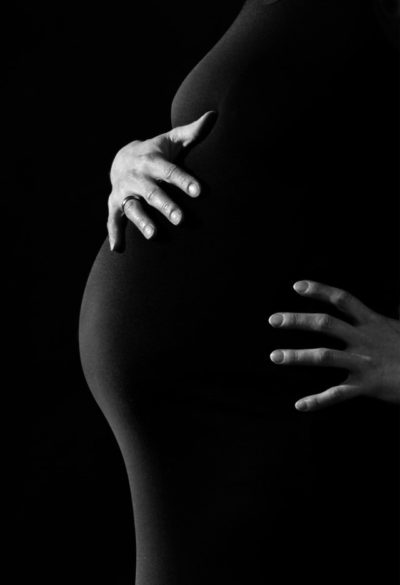Postpartum Depression And Addiction
There are millions and millions of women in this world. Unfortunately, many of them suffer with substance use disorder and depression. In fact, substance use disorder is a big part of postpartum depression. While giving birth to your bundle of joy is amazing, those weeks after birth can be very trying. You can hit some highs and very severe lows. It can feel like you are on a roller coaster during this time. In addition, you have your hormones all over the place as well. The roller coaster and hormone changes can put any woman at risk for depression. There are many women who will cope with their depression by self-medicating with drugs or alcohol. This leads to them to have a dual diagnosis. If you have a dual diagnosis, you may benefit from attending a dual diagnosis rehab.
Learn More About Postpartum Depression
While postpartum depression is quite common, a lot of women are afraid to say they are feeling depressed. They may feel ashamed, uncertain, and like others won’t understand what they are going through. Instead of talking about the depression, many women will instead drink or use drugs. It is important that you know the addictive lifestyle and depression don’t have to last. If you have fallen into this trap, you can attend a Rehab for Women to get the help you need. How are you supposed to know if you have postpartum depression or if you are just feeling a bit down. Some of the symptoms you might notice include the following: 
- Depressed – Is your mood almost always depressed?
- Losing interest – Have you been losing interest in things you used to enjoy?
- Insomnia – Have you been unable to sleep?
- Hypersomnia – Have you been sleeping way too much?
- Unable to make decisions – Have you been having a tough time concentrating or having memory issues?
- Self-injury – Have you been thinking about suicide or have you attempted suicide?
- Other changes – Have you lost your appetite, been eating too much, lost your energy, or feel extremely fatigued?
You should remember that these things are quite common when someone has a baby. However, if they seem to be taking over your life, it may be time to talk to your doctor about them. If you have been abusing drugs or alcohol to help you deal with these things, you may have a dual diagnosis and need other treatments as well.
Most new mothers experience some symptoms after giving birth. However, if you have a minimum of five symptoms for around two weeks after you give birth, it may be time to speak to a professional. You could have some level of postpartum depression. Keep in mind there is absolutely no shame in asking for help. You are not alone.
Some of the most severe postpartum depression symptoms include the following:
- You don’t want to take care of your child.
- Your anger is directed towards your partner or child.
- You have been resenting your baby or the fact that you got pregnant.
If you are experiencing these more severe symptoms of postpartum depression, you should seek immediate professional help. The professional you speak with can help to treat your depression, so you can start feeling better soon.
Links Between Substance Use Disorder and Postpartum Depression
Having a baby does turn your life around. You may have trouble sleeping, anxiety may be threw the roof, and you may not think you are doing things correctly. This isn’t uncommon. Many new mothers seek out substances such as alcohol or drugs to help handle these symptoms. They may take a sleeping medication to help them fall or stay asleep when their baby falls asleep. They may drink alcohol to help themselves relax. No matter what you may have started using, there is help available. You can overcome your dependency to the substance and overcome your depression as well.
It is prevalent for postpartum depression to occur along with other types of mental health problems too. Before a woman gets pregnant, she may think she had her anxiety or other mental health problem under control, but the depression that arises after giving birth can worsen them. It worsens it to the point where many mothers will drink alcohol or do drugs. SAMHSA the Substance Use Disorder and Mental Health Services Administration states that:
- Around 15 percent of the women from ages 15 through 44 reported binge drinking postpartum
- Another 9 percent said they used illicit drugs during that time
This may not seem like a large amount. However, each number is a mother and a child who needs to stay safe. These mothers need to get the help they are looking for and that is available in dual diagnosis rehab centers.
Research does show that substance use disorder disorders and depressive disorders worsen each other. In some countries, there have been reports of as many as 49 percent of postpartum women suffering from a mental health condition.
Risk Factors for Substance Use Disorder and Postpartum Depression
There are some factors that can cause a woman to have a higher risk for postpartum depression. If the woman has family members with psychiatric disorders, she may have a higher risk of having postpartum depression or other depressive episodes. If the woman doesn’t have great support from her family, she may have a higher risk of developing depression as well. Both of these factors may also exacerbate the risk of developing a substance use disorder disorder too. Some mothers are given a narcotic prescription from their doctor after they give birth, usually after c-sections. Taking these prescriptions can increase the risk of a substance use disorder disorder. Some of the other substance use disorder risk factors include:
 Depression history – If you had postpartum depression in one or more of your previous pregnancies, there is a higher chance that you will struggle with it again. In addition, you may struggle with general depression as well. If your mother had postpartum depression, there is also a higher chance that you will have it as well. A history of depression increases the risk of substance use disorder as well.
Depression history – If you had postpartum depression in one or more of your previous pregnancies, there is a higher chance that you will struggle with it again. In addition, you may struggle with general depression as well. If your mother had postpartum depression, there is also a higher chance that you will have it as well. A history of depression increases the risk of substance use disorder as well.- Lack of support – It was mentioned quickly above, but a lack of support is a risk factor for developing substance use disorder and depression. Taking care of a baby does change things in your life. You may have some people who stop calling as much or coming over as much. However, to reduce the risk of depression and substance use disorder, it is very important that you have a good support system. This is especially true if you are a single mother. You can get support from your family, friends, other mothers, and more. There are people who would like to help you out.
- Stress in your environment – Many mothers, especially of newborns, have some stress in their environment. However, if you are feeling overwhelmed by the stress, it is time to get help. You may have a financial issue, fears regarding being a mother, anxiety in your relationships, stress from lack of sleep, and more. All of these things can increase your risk of postpartum depression and substance use disorder.
If you have these risk factors in your life, you should reach out for help. You don’t have to struggle on your own. In fact, if you reach out for help, you and your baby will likely feel a lot better.
Managing Your Stress Levels
As mentioned above, higher levels of stress can lead to both postpartum depression and substance use disorder. While sometimes you can’t make all the stress go away, you can find some ways of managing it. Some of the tips you can use to do this include the following:
- Get outside – When you give birth, your body is depleted. You need to get some natural Vitamin D. You can do this by going for a walk outside. This also allows you to clear your mind, so you can have less stress. If you don’t already have one, get a stroller. You and your baby can bond throughout these walks as well. They are also a great way to get baby down for a nap or to stop his or her crying. Most babies love the outdoors.
- Meditation – You can try meditation to manage your stress levels as well. If your baby is sleeping, but you are too stressed to fall asleep, meditation can help. There are many sleep guided meditations you can try. Once you can relax your mind, it is going to help you sleep better.
- Talking through it – Stress affects everyone to some extent. You might be surprised at how many mothers you know who are experiencing the same thing you are or who have experienced it. Talk to them. Let them know what you are going through. You can also find a support group for new mothers and talk to them about what you are going through as well. You can find people who are going to understand and empathize with you.
These are some of the best tips you can use for managing your stress as a mother of a newborn. If you find these tips don’t work, you can always turn to professional help and talk to a therapist about your emotions, feelings, and experiences as well.
Getting Treatment
There are some mothers who think their depression means they are betraying themselves or their child. This can lead them to isolate from others and even from their own child. It can also lead them to abuse alcohol or drugs. Alcohol or drug dependency can lead to a dangerous environment for the baby and the mother.
Do you have more sad thoughts than joyful ones? Did you just have a baby, but can’t seem to connect with him or her? If you can’t seem to control these feelings, you need to know that there is help out there. You can get treatment for your depression, so you can feel better. If you have started abusing drugs or alcohol, you can get treatment for that as well. You should find a dual diagnosis rehab center if you have a substance use disorder disorder and mental health disorder such as depression. This way your disorders can be treated together.
Treatment with Dual Diagnosis
It is important to recognize whether you have depression and an addiction. If you do, treatments with dual diagnosis programs are the best option. Some of the ways this type of program can help you include the following:
- Helping you deal with symptoms of withdrawal from alcohol and/or drugs
- Non-addictive medications to help with your depression
- Psychological condition interventions
- Group or individual therapy
- Family therapy
- Relapse prevention education
- Dual diagnosis therapy
- Social group support
- 12 Step support programs
These are just some of the ways that a dual diagnosis treatment program can help you to overcome your depression and addiction. Make the call today if you need help with both of these things.


